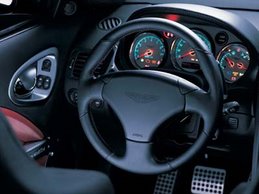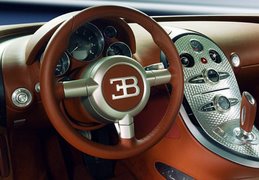 Mitsubishi Lancer Evolution VIII - The car might not sell in large numbers, but its performance and purity give us, and others, a reason to hope that Mitsu can find a way out of its troubles. We still feel the same way about the car even after almost two years and 40,000 miles, but aside from amusing us, our Rally Red stormer also bemused (and, as you'll see, abused) us, but it certainly never bored us.
Mitsubishi Lancer Evolution VIII - The car might not sell in large numbers, but its performance and purity give us, and others, a reason to hope that Mitsu can find a way out of its troubles. We still feel the same way about the car even after almost two years and 40,000 miles, but aside from amusing us, our Rally Red stormer also bemused (and, as you'll see, abused) us, but it certainly never bored us.Less than a month later, we tested the Evo, and our self-control was repaid with a 0-to-60 time of 5.0 seconds. Forty-thousand miles later, the repeat performance took 5.1 seconds. Also, we never had to add a quart of oil over all those miles. We've heard from owners who couldn't keep from cranking the tach to the far right as they pulled out of the showroom lot and now must add quarts of oil regularly.
The first complaints were aimed at the quick (2.1 turns lock-to-lock) steering that was praised for its feel and accuracy but just as often derided for a level of nervousness usually reserved for amphetamine aficionados. Not helping matters was an unyielding suspension that didn't know how to relax. As one editor put it, "The Evo feels as if the axles were welded to the body." We checked. They're not. The 2005 MR version of the Evo goes a long way toward calming the suspension,
 but our 2003 model didn't have the magic Bilstein shocks, so we were a bit abused.
but our 2003 model didn't have the magic Bilstein shocks, so we were a bit abused.For the more adventurous among us who braved the ride and didn't mind the lack of cruise control, the Evo proved to be a willing weekend companion. Long trips revealed the excellence of the Recaro seats and the car's brilliant passing power and bright xenon headlights that make it a great horizon chaser. The only problem was the view out the rear window. The gaudy, optional carbon-fiber spoiler ($480) attached to the trunk is set exactly in the line of sight of the rearview mirror. It's important to check your six for the occasional Smokey, especially if you don't have cruise control.
Mitsubishi's service schedule calls for a change of the synthetic oil and a tire rotation every 5000 miles. Although the price varied, these usually cost about $100 ($25 for the rotation and $75 for the oil change). In addition to the oil change, the Evo requires several inspections at 15,000 miles. That stop totaled $200. At 30,000 miles, just about every fluid used in the car had to be replaced, setting us back $564. The brake pads had been eaten up by 30,000 miles, and replacing them cost $907.
The logbook began to fill with entries complaining about how tired and worn out the Evo felt. This crunching continued for another 15,000 miles, until the end
 of the test, when the second- and fifth-gear synchros (shifting into second had become difficult) were finally replaced under warranty. While the transmission was being rebuilt, we opted to have the clutch replaced because it had slipped away into the ether. Although a new clutch usually runs about $1500 for parts and labor, in this case we only had to pay $741 for parts.
of the test, when the second- and fifth-gear synchros (shifting into second had become difficult) were finally replaced under warranty. While the transmission was being rebuilt, we opted to have the clutch replaced because it had slipped away into the ether. Although a new clutch usually runs about $1500 for parts and labor, in this case we only had to pay $741 for parts.Some of us were turned off by its unrefined raw temperament, but those who loved the Evo tended to view the rawness as purity. Our 40,000 miles showed that the price of replacing the Evo's track-ready parts isn't cheap, but as long as a $30,000 sedan with this level of performance exists, the world will be a better place.













No comments:
Post a Comment